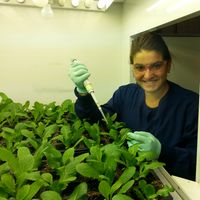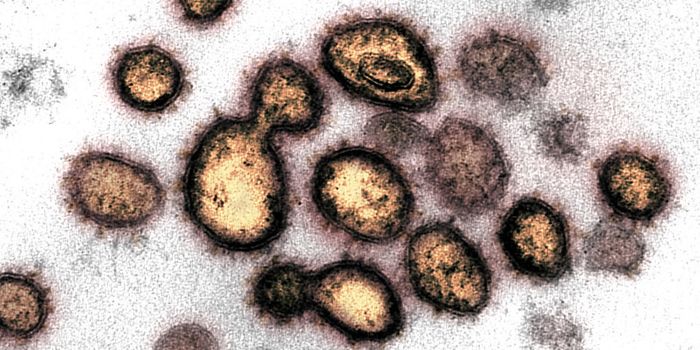Epstein-Barr Virus Symptoms Driven By Host Immune Response
Epstein-Barr virus (EBV) is the notorious virus known to cause infectious mononucleosis, also known as “mono” or “the kissing disease”. It belongs to the herpes virus family and usually infects children and young adults. Transmission of the virus occurs through saliva by kissing, sharing food or drinks, sharing eating utensils or toothbrushes, or having contact with toys that infected children have put their mouths on.
A study published in the Journal of Virology reported that asymptomatic carriers of the Epstein Barr virus have lower levels of lymphocytes, CD8+ T cells and natural killer cells compared to infected individuals experiencing symptoms. Credit: dkfz.de
Symptoms of EBV infection include fatigue, fever, inflamed throat, swollen lymph nodes in the neck, enlarged spleen, swollen liver, and rash. Most people will recover from the virus in two to four weeks while others will continue to display symptoms for several months. The virus can also remain latent in the body and reactivate at any time. Infected persons can shed the virus for weeks before symptoms may begin to occur. There is currently no vaccine and no specific treatment for EBV infection.
According to an article published in the Journal of Virology, it is not well understood why some portions of the EBV infected population remain asymptomatic. Researchers conducted a study to try and address this question and found that immune response plays an important role. In this study, researchers tracked the serologic status of 450 young adults for a number of viruses including EBV. Antibody responses as well as viral loads were assessed in each infected individual.
Six participants were identified as asymptomatic carriers of the virus. When authors compared the amounts of viral DNA in asymptomatic carriers versus those displaying symptoms, no difference was found indicating that viral load does not play a role in the development of EBV symptoms.
Instead, authors found that participants who were displaying symptoms had increased lymphocyte levels as well as activated CD8+ T cells and natural killer cells. Circulating dendritic cells were found to be elevated in asymptomatic participants but were depleted in symptomatic participants. Scientists now believe that differences in immunological response to EBV infection can help explain why some individuals experience symptoms and others do not.
Long-term studies should be performed in order to fully understand the course of the EBV infection including symptomatic and asymptomatic populations. This could potentially help physicians to decrease the long duration which some individuals experience symptoms of infection through modulation of the host immune response. In the meantime, the Centers for Disease Control and Prevention recommends that those experiencing symptoms drink plenty of fluids to stay hydrated, get plenty of rest, and take over-the-counter medications for pain and fever.
Sources: mBiosphere, Journal of Virology, CDC









